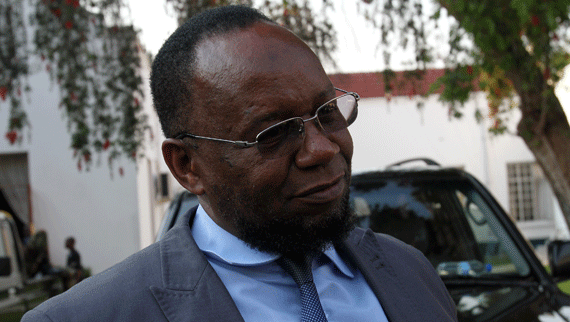
The old English adage says education is key to success, but this seems not to be the case for scores of villagers from Goba area under chief Gampu in Bulilima, as their dream of having a decent education seems to hit a brickwall.
Luyanduhlobo Makwati Own Correspondent
The future of children in the area remains highly compromised, as their nearest school is 16km away.
To add insult to injury, Goba Primary School, supposed to serve the community, has not been built.
Villagers said a school was registered in 1976 in the area as Goba Primary, but to date no structures had been put up and pupils from the locality are forced to travel long distances to neighbouring villages.
The ambitious community has indicated that it wishes to construct its own school after the government failed to meet its obligation of putting up a structure in the area since 1976 when the school was registered.
In a recent visit by Southern Eye to the area, villagers decried the situation on the ground, saying it was not conducive for their children’s future and were planning to build structures on the 1976 site.
Mxolisi Ndlovu, a school dropout in the village, said it was difficult for him to access education when he was young because of distances he had to walk daily.
- Chamisa under fire over US$120K donation
- Mavhunga puts DeMbare into Chibuku quarterfinals
- Pension funds bet on Cabora Bassa oilfields
- Councils defy govt fire tender directive
Keep Reading
“They say its 16km, but I’m certain it is over 24km because my brother, who owns a car, once measured the distance,” he said.
Ndlovu said because of frustration in the area, a number of people left for neighbouring Botswana and South Africa, where there were promises of better life.
“Our brothers and sisters left the country when they were young after having dropped out of school and they are now working there doing menial jobs,” he said wistfully.
“I am happy that the few people who managed to advance their education when they left this area have managed to help us by improving the community.
“As we speak, the initiative of building this school is a result of our brothers who agreed to donate money.
“Every homestead with a number of kids outside the country has pledged at least R100 so that a school can be built.”
Sizwakele Sibanda, one of the villagers, said they fully supported the idea to construct a school in the area.
“We are happy with such an initiative and we are looking forward to have structures built in the area to establish a school,” she said.
“We hope this will give our children a bright future and have them working in offices like other children in the country, who live in environments that have enough schools.”
In their bid to improve education in the area, one of the villagers identified as Khulu Ndlovu said as a community they had asked to have the community hall turned into an infant school for Grade 0.
Chief Gampu bemoaned distances children have to travel to school daily.
Last year, the Primary and Secondary Education minister Lazarus Dokora said the government would work hard to see that communities were assisted at whatever cost to make sure children did not travel long distances to schools.
“We are aware that there are areas where children below the age of eight years have to walk long distances, so we are saying communities could come up with structures to help their children and if they inform us as the ministry we will support them and make sure that people with relevant educational qualifications will be deployed to those areas,” he said then.
Besides travelling long distances to neighbouring schools, education in the area is not easily accessible.
Despite education being a basic right in the country, children in the area learn only for at most seven months a year between April and October when river levels are low.
The moment the rainy season begins children risk their lives going to school and at times are forced to sleep in neighbouring villages, as they would not be able to cross two big rivers, Southern Eye was told.
Last year four children were trapped between Moza and Sinotsi rivers for four days and were found sitting on trees in the middle of two rivers, after the Moza Dam burst.
The pupils were on their way from school.










